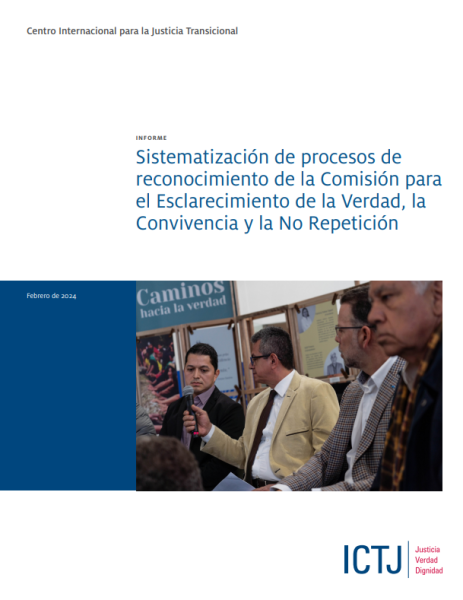We work side by side with victims to obtain acknowledgment and redress for massive human rights violations, hold those responsible to account, reform and build democratic institutions, and prevent the recurrence of violence or repression.
Systematization of Acknowledgment Processes of the Commission for the Clarification of Truth, Coexistence, and Non-Repetition in Colombia
As part of its mandate, Colombia's Commission for the Clarification of Truth carried out 68 processes of acknowledgment led or supported by a specialized team. These processes sought to acknowledge victims and the harms they suffered, as well as individual or collective responsibilities. This report systematically examines 10 of these experiences and offers lessons learned for future processes.

As part of its mandate, Colombia's Commission for the Clarification of Truth carried out 68 processes of acknowledgment led or supported by a specialized team. These processes sought to acknowledge victims and the harms they suffered, as well as individual or collective responsibilities. This report systematically examines 10 of these experiences and offers lessons learned for future processes.
The first chapter gives an overview of the commission's work. The report then describes the principles and criteria used by the commission; how the commission strengthened these processes; the central actors; and the relationship between acknowledgment, forgiveness, and reconciliation.
The report explains the commission's work in the phases leading up to the public acknowledgment hearings, the steps taken to prepare the parties, the dilemmas they encountered, and some of the methodologies used by the team. It also describes the staging of public acknowledgment hearings and encounters between victims and responsible parties.
The fifth chapter deals with the follow-up of these processes, emphasizing how the commission carried out the evaluation of the acknowledgments. It also analyzes the testimonies and other demonstrative gestures made by those responsible. The sixth and final chapter offers reflections and lessons learned for future processes.